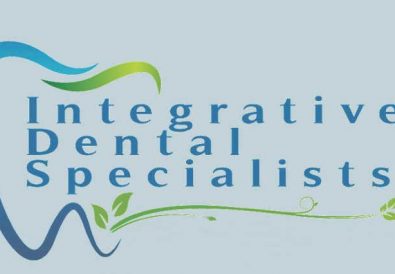Western or conventional medicine stands above the rest of the world when it comes to acute and emergency care. If you are involved in a car accident, wounded by a gunshot, or experience a heart attack, having access to the scientific wonders of conventional medicine could save your life. For those with life-threatening illnesses that would have meant their death even a generation ago, conventional medicine has saved millions of lives.
But the ER only helps for a crisis when no other intervention method is better. For chronic diseases such as heart disease, diabetes, obesity, arthritis, or depression, conventional medicine has, in my opinion, failed us.
Physicians are trained to treat only the symptoms, not the underlying causes of the disease, dysfunction, or imbalance. In an acute situation where it is necessary to go to the ER, the health-care workers can help to stabilize the condition. But if someone goes to the ER with a miserable, chronic condition that has given them a poor quality of life, so much so that they feel like they are dying—but they are not actually dying—then the ER health-care workers have very little to nothing to offer them.
For most chronic conditions, the ER sends the patient home with the standard discharge instructions, such as “take these medications and follow up with your primary physician.” And with the current state of health care today, it might take a few weeks to several months to get a follow-up appointment.
Health insurance and affordable health care are oxymorons. There is no care or affordability with insurance, especially since insurance companies are mainly private and profit-driven by definition. Politically, it sounds good for those who work in government to tout health care for everyone, but the “benefits” of a mandatory, for-profit health-insurance network are not rooted in reality. In my opinion as a physician, we went wrong when we decided to pay private insurance companies rather than create a universal health plan that everyone participates in. Private insurance companies are only looking out for quarterly profits on Wall Street, exorbitant CEO and management salaries, and their bottom line—not your best health outcome. Although it helps to have some coverage if we get into an accident, mandatory insurance will never really prevent us from getting the most common diseases or from getting sick. It simply provides a system where you receive bills monthly and then have to meet high deductibles, in addition to copays. Even with insurance available to everyone, it is still not affordable once someone gets sick because, as of this writing, the Affordable Care Act (ACA) has still not controlled the costs of health care.
So, although the insurance companies cannot deny coverage because of a preexisting condition as they did previously, they will always charge you more just to accept you. Thus, and many people don’t realize this, private insurance companies, hospitals, doctors, and pharmaceutical companies can charge whatever they want without any regulation of health-care costs. Just because we all have health insurance does not mean that we will all have improved overall health outcomes (with the possible exception of the very poor who previously had no health care and those with acute emergencies). But the ACA will improve the private insurance companies’ profits and please Wall Street and their shareholders.
Unfortunately for the citizens of the United States, this “profits before people” ethos has spread to medical schools. Conventional medical schools train us in “disease management.” We learn how to treat and manage symptoms but not how to treat the underlying causes of disease. This is standard practice in the United States, where pharmaceutical companies, which want to maximize profits over health outcomes, primarily dictate the practice of medicine. Managing symptoms via long-term prescriptions and treatment is far more profitable than alleviating the disease through simple, time-tested, science-backed methods.
Fortunately, many people are rejecting this paradigm. Integrative medicine, as used in my practice and as practiced in most other countries in the world, views patient health through the concept of disease resolution. With integrative medicine, we are geared toward finding the underlying cause of dysfunction, imbalance, or disease and then removing or rebalancing those factors. This is, logically, what will lead to resolution of disease. However, conventional medicine and integrative medicine are two radically different philosophies and approaches to health and healing.
I, along with many Americans when given the choice, will choose the integrative medicine approach when offered. That’s because, as a medical doctor, I believe in helping my patients get well, not simply managing their symptoms.
Reprinted with permission from An Inflammation Nation – The Definitive 10-Step Guide to Preventing and Treating All Diseases through Diet, Lifestyle, and the Use of Natural Anti- Inflammatories, ©2015 by RocDoc Publications and Sunil Pai, MD. Signed copies, Kindle and Audiobook are available on AnInflammationNation.com

 Sunil Pai, MD is a board certified holistic integrative medicine physician and is certified in Functional Medicine, Homotoxicology, and Physiological Regulating Medicine, Medical Acupuncture through Stanford University School of Medicine, and is also certified in Neuro-Acupuncture, Ayurvedic medicine and yoga. Additionally, Dr. Pai is certified in Plant-Based Nutrition from Cornell University and the T. Colin Campbell Foundation. Dr. Pai runs one of the largest plant-based practices in the U.S., Sanejvani Integrative Medicine Health & Lifestyle Center in Albuquerque, and is available for online health consultations or in person for those who would like to visit the Center. AnInflammationNation.com, sanjevani.net.
Sunil Pai, MD is a board certified holistic integrative medicine physician and is certified in Functional Medicine, Homotoxicology, and Physiological Regulating Medicine, Medical Acupuncture through Stanford University School of Medicine, and is also certified in Neuro-Acupuncture, Ayurvedic medicine and yoga. Additionally, Dr. Pai is certified in Plant-Based Nutrition from Cornell University and the T. Colin Campbell Foundation. Dr. Pai runs one of the largest plant-based practices in the U.S., Sanejvani Integrative Medicine Health & Lifestyle Center in Albuquerque, and is available for online health consultations or in person for those who would like to visit the Center. AnInflammationNation.com, sanjevani.net.

















